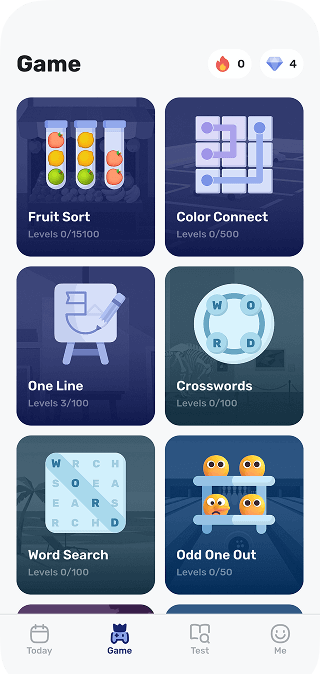What Is Episodic Memory
Jerry Lead Contributor / Oct 11, 2025
Episodic memory is a type of long-term memory that may be unique to humans and is associated with a specific time and place in the past, with associated emotions and other related knowledge. It is a memory that can be specifically pointed out, a collection of personal experiences that occurred at a specific time and place in the past. For example, if a person remembers his or her 6th birthday party, this is an episodic memory.

Types of Long-Term Memory
Long-term memory can be divided into two types, one is declarative memory and the other is implicit memory. Semantic memory and episodic memory make up declarative memory. The term "episodic memory" was coined by Endel Tulving in 1972. He pointed out the difference between "knowing" and "remembering". "Knowing" contains more factual elements in it (semantics), while "remembering" is a feeling that exists in the past (episodic).

9 Characteristics of Episodic Memory
Episodic memory has nine essential characteristics that distinguish it from other types of memory. Other types of memory may have some of these characteristics, but only episodic memory has all nine characteristics:
- Records the process of conceptual and emotional processing related to sensory perception.
- Can maintain active/inhibited modes for a period of time.
- Often presented in the form of visual images.
- They always have a perspective from different levels or different observers.
- Represent a short period of experience.
- The time progression in episodic memory is roughly equivalent to the order of events.
- They are quickly forgotten themes.
- Associated with specific information such as personal experience, time, and place.
- When these memories need to be used, they need to be recalled.
How Episodic Memory Works
The formation of new episodic memories requires the help of the medial temporal lobe, which contains the hippocampus. Without the medial temporal lobe, a person would only be able to transform memories into new procedural memories (such as playing the piano), but would not be able to remember the events that occurred.
The prefrontal cortex (particularly the left side of the brain) is also involved in the formation of new episodic memories (also called episodic engramming). Patients with damage to the prefrontal cortex can learn new information, but often in ways that are not normal. For example, they may be able to point to an object they have seen in the past, but not remember when or where they saw it. Some researchers believe that the prefrontal cortex helps organize information so that it can be stored more efficiently, depending on the specific function of each part, while others believe that the prefrontal cortex has a semantic basis that strengthens engramming for processing new events, such as thinking about the meaning of what is learned or rehearsing what is learned in working memory.
Other studies suggest that the inferior parietal lobe plays a key role in episodic memory, perhaps acting as an accumulator that makes things feel familiar, or perhaps supporting mental imagery that makes us feel the vividness of memories. In fact, in cases of bilateral inferior parietal lobular damage, episodic memory is largely intact, but lacks detail and patients have low confidence in their memories.
Researchers have different views on how long episodic memories can be stored in the hippocampus. Some researchers believe that episodic memories always rely on the hippocampus, while others believe that episodic memories are only stored in the hippocampus for a short time, and then the memory will be merged into the neocortical episodic memory. The latter view is supported by recent evidence that neurogenesis in the adult hippocampus may help remove old memories and increase the efficiency of forming new memories.
Relationship with Semantic Memory
Episodic memory refers to our memory of the time, place, behavior, and other situations of a specific event. We can clearly recall the happy times when we were on vacation at the beach, or the warm scenes when our family celebrated a birthday. This way of memory is based on our experience and perception of a specific situation, so it is largely specific and individual. Episodic memory also helps us make decisions and behaviors in certain specific situations.
Unlike episodic memory, semantic memory refers to our memory of understanding and knowledge of things. This way of memory is based on our understanding and memory of concepts, definitions, rules, etc. We can recall the capitals of countries around the world, famous historical events, etc. This way of memory is more abstract and generalized, so it is easier to use for logical reasoning and knowledge application.
Semantic and episodic memory together make up declarative memory. They each represent different parts of the context to form a complete picture. Because of this, factors that affect episodic memory may also affect semantic memory. Tuvey originally proposed that episodic and semantic memory are two separate systems that compete with each other when we recall an event. However, this theory is contrary to Howard and Kahana's experimental results on latent semantic analysis. Although the two systems are sometimes difficult to combine in time, they are equally important in the process of recall.
Examples of Episodic Memory
Episodic memory plays an important role in our daily lives. It is a form of memory formed by encoding and storing sensory information about a specific event or scene. Episodic memories are often vivid and detailed, and help us recall past experiences and feelings. Here are a few examples of episodic memory:
1. Birthday Party
I remember one time, I held a birthday party for my best friend. I prepared everything in advance, including cakes, decorations, and gifts. When she arrived at the party, I saw her surprised expression, which really made me very happy. We spent a happy night with our friends, and laughter and joy filled the whole room. This scene is deeply engraved in my memory, and I can clearly recall the atmosphere and happiness at that time.
2. Graduation Ceremony
Another unforgettable scene memory is my college graduation ceremony. I stood on the stage, wearing a graduation gown and bachelor's hat, and there was a solemn and solemn atmosphere in front of me. I could feel the encouragement and applause of thousands of graduates and parents. At the moment of receiving the graduation certificate, my heart was filled with pride and a sense of accomplishment. This scene means a lot to me, representing the results of my hard work in four years of college and my hope for the future.
3. Wedding
Getting married is a very moving moment, and I will never forget this memory. When my partner and I walked into the wedding venue, I saw the flowers and decorations, and the friends and family sitting in the seats. When I walked towards him and we exchanged vows and rings, I felt the blessings and support of the people. This moment was full of love and happiness, and I knew it would be an important memory in our lives.
4. Sad Farewell
However, episodic memory is not always about happiness and joy. Sometimes, it also involves sadness and loss. I remember one time when my family and I said goodbye to my late grandfather. At the funeral, the room was filled with grief and crying, and everyone had a heavy heart. I can clearly remember every detail of the funeral scene, including wreaths, photos, and sad expressions of relatives and friends. Although this scene was sad, it also reminded me of the close relationship between family members and the importance of cherishing time.
5. Travel experience
Episodic memory can also be related to travel. I still remember the trip I took to the seaside with my friends last year. We rented a villa and lived a carefree life every day. I can clearly recall the morning sunshine, the sound of waves on the beach and the laughter. These happy scenes kept me in a happy mood. This episodic memory reminds me of the joy of traveling and the precious time with friends.
How Does Age Affect Episodic Memory?
Age is an important factor affecting memory, and memory ability declines with age. There are differences in brain activation between the elderly and young people during the memory process. Several reports have found that the elderly have more activation areas in the bilateral prefrontal cortex than young people during the encoding and retrieval of word memory. The language, text and spatial memory activities of young people are concentrated in the activation of the left frontal lobe. Cabeza et al. attributed this phenomenon to the dedifferentiation and remodeling of the brain, which leads to the attenuation of the lateral dominance of the cerebral hemisphere (the HAROLD model).
Does Anxiety Affect Episodic Memory?
Anxiety disorders generally affect memory. There are two symptoms when anxiety attacks occur: mood symptoms and physical discomfort, both of which may affect memory. Mood symptoms include uneasiness, tension, worry, and panic. Under these circumstances, people find it difficult to concentrate, and the capture and intake of information are incomplete, resulting in problems in memory retrieval. In addition, physical discomfort may cause headaches, abdominal pain, palpitations, etc. Under the interference of these symptoms, it is also difficult to clearly take in information, resulting in problems when recalling it again.

Do Emotions Affect Episodic Memory?
The relationship between emotion and memory is complex, but generally speaking, emotion helps enhance memory, making events more vivid and easier to recall. Flashbulb memory is an example of this. If you have ever experienced a close family member dying, or received a long-desired toy gift as a child at Christmas, these experiences contain many deep emotions and can almost completely remember the scene at the time.
How to Improve Episodic Memory
1. Healthy Living Habits
Memory retention is closely related to living habits. Just as plants need sunlight, water and soil to thrive, the brain also needs a suitable environment to maintain its function. For example, sleep is an important part of memory consolidation. Imagine if a computer runs for a long time without being restarted, its performance will gradually decline. Similarly, the brain will organize and store information received during the day in deep sleep. Therefore, ensuring adequate sleep time, especially high-quality deep sleep, is the basis for improving memory.
2. Nutritional Supplements
Nutrition is like fuel, providing the brain with a constant supply of energy. Certain foods have been shown to have a positive effect on memory. For example, fish rich in Omega-3 fatty acids are like lubricants injected into the brain, making it run more smoothly. Dark fruits such as blueberries act as natural antioxidants, protecting the brain from free radicals. At the same time, B vitamins are also believed to contribute to the healthy functioning of the nervous system. By properly matching your diet, you can create a vibrant working environment for the brain, thereby improving memory.
3. Relaxation and Meditation
The mental state is like the weather. When it is sunny, everything is full of vitality, while when it is cloudy, it seems dull and depressing. Excessive stress can cause the brain to be in a state of tension, which affects the formation and retrieval of memory. For example, when a person faces an important exam, excessive anxiety may make him forget the knowledge he has reviewed. Therefore, it is very important to learn to regulate emotions. You can relax your body and mind through meditation, deep breathing or listening to music, so that the brain is in a peaceful state, which is more conducive to the accumulation and use of memory.
Final Thoughts
Episodic memory is an important form of memory in our brain. By remembering sensory information about a specific scene, we can recall past experiences and feelings. Whether it is a happy or sad scene, episodic memory can have a profound impact on our lives. It can help us feel happy and joyful, but it can also make us realize the transience and preciousness of life.
Disclaimer
Any assessments and their associated content on this website, regardless of date, are not intended to replace direct medical advice from your physician or other professional. If you experience severe or persistent symptoms, please consult a licensed mental health professional or healthcare provider.












